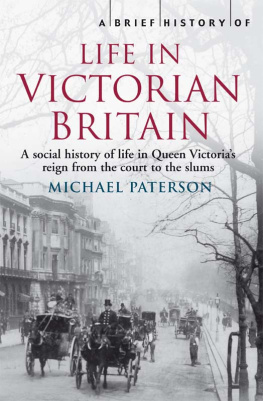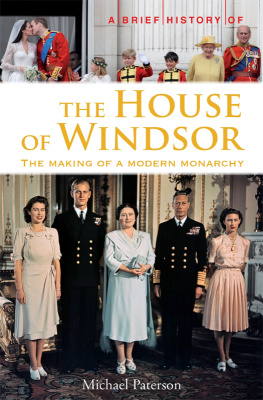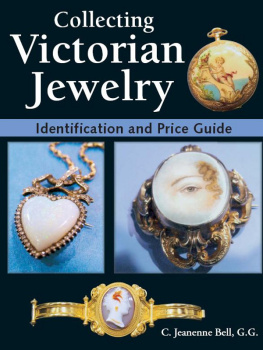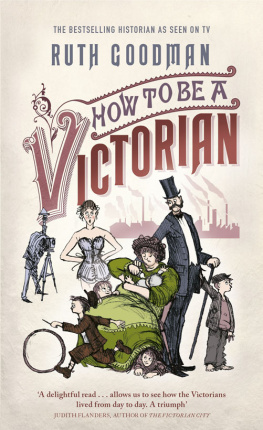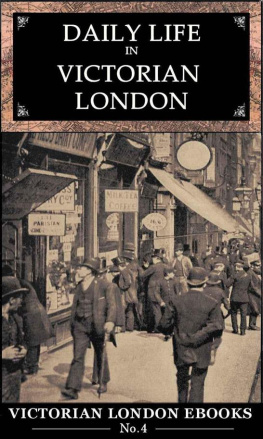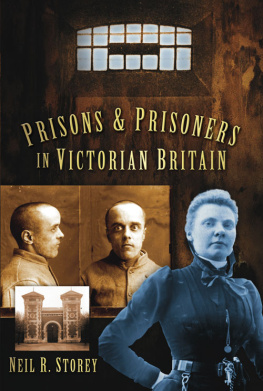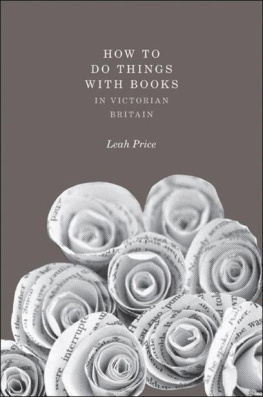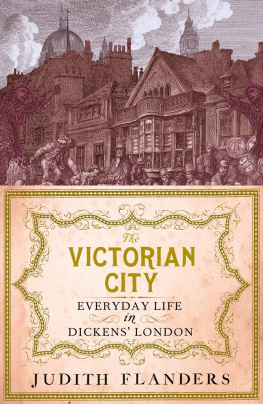Michael Paterson is the author of Voices from Dickens London (David & Charles, 2006) and of several books on military history. He lives in London.
Titles available in the Brief History series
A Brief History of 1917: Russias Year of Revolution
Roy Bainton
A Brief History of the Birth of the Nazis
Nigel Jones
A Brief History of the Circumnavigators
Derek Wilson
A Brief History of the Cold War
John Hughes-Wilson
A Brief History of the Crimean War
Alex Troubetzkoy
A Brief History of the Crusades
Geoffrey Hindley
A Brief History of the Druids
Peter Berresford Ellis
A Brief History of the Dynasties of China
Bamber Gascoigne
A Brief History of the End of the World
Simon Pearson
A Brief History of the Future
Oona Strathern
A Brief History of Globalization
Alex MacGillivray
A Brief History of the Great Moghuls
Bamber Gascoigne
A Brief History of the Hundred Years War
Desmond Seward
A Brief History of Medieval Warfare
Peter Reid
A Brief History of Misogyny
Jack Holland
A Brief History of Medicine
Paul Strathern
A Brief History of the Normans
Franois Neveux
A Brief History of the Private Lives of the Roman Emperors
Anthony Blond
A Brief History of Science
Thomas Crump
A Brief History of Secret Societies
David V. Barrett
A Brief History of the Age of Steam
Thomas Crump
A Brief History of Stonehenge
Aubrey Burl
A Brief History of the Vikings
Jonathan Clements
A BRIEF HISTORY OF
LIFE IN VICTORIAN BRITAIN
How a Nation Grew into an Empire and the Birth of Modern Society
MICHAEL PATERSON

Cover illustrations from the authors own collection
Constable & Robinson Ltd
5556 Russell Square
London WC1B 4HP
www.constablerobinson.com
First published in the UK by Robinson,
an imprint of Constable & Robinson, 2008
Copyright Michael Paterson, 2008
The right of Michael Paterson to be identified as the author of this work has been asserted by him in accordance with the Copyright, Designs & Patents Act 1988.
All rights reserved. This book is sold subject to the condition that it shall not, by way of trade or otherwise, be lent, re-sold, hired out or otherwise circulated in any form of binding or cover other than that in which it is published and without a similar condition including this condition being imposed on the subsequent purchaser.
A copy of the British Library Cataloguing in Publication data is available from the British Library
UK ISBN 978-1-84529-707-7
eISBN 978-1-47210-767-1
1 3 5 7 9 10 8 6 4 2
First published in the United States in 2008 by
Running Press Book Publishers
All rights reserved under the Pan-American
and International Copyright Conventions
This book may not be reproduced in whole or in part, in any form or by any means, electronic or mechanical, including photocopying, recording, or by any information storage and retrieval system now known or hereafter invented, without written permission from the publisher.
9 8 7 6 5 4 3 2 1
Digit on the right indicates the number of this printing
US Library of Congress number: 2007941944
US ISBN 978-0-7624-3518-0
Running Press Book Publishers
2300 Chestnut Street
Philadelphia, PA 19103-4371
Visit us on the web!
www.runningpress.com
Printed and bound in the EU
CONTENTS
LIST OF ILLUSTRATIONS
A nursemaid in the garden with her charges
All illustrations are from the authors own collection
ACKNOWLEDGEMENTS
I would like to express the utmost gratitude to Leo Hollis at Constable for his unfailing patience; to Christopher Feeney for the forbearance, wisdom and humour he has brought to the daunting task of editing the text, and Jessica Cuthbert-Smith for a similar, equally praiseworthy and equally appreciated forbearance; to my sister Carolyn for marrying someone with an encyclopaedic knowledge of both sport and railways I have been most fortunate in being able to pester my brother-in-law, Mark Rowland-Jones, with questions on these subjects at all hours of the day and night. As usual my debt is immense to Sandy Malcolm for his computing expertise. Lastly, I thank my wife Sarah, whose support has been, as always, invaluable.
To Malcolm Brown
Few are privileged to have a kinder friend
INTRODUCTION: A GRAND TRIUMPHAL MARCH THE VICTORIAN ERA
When she came to the throne coaches still ran; men wore stocks, shaved their upper lips, ate oysters out of barrels. Women said La!, and owned no property. Wellnigh two generations had slipped by of steamboats, railways, telegraphs, telephones, bicycles, electric light, and now these motor cars. Morals had changed, manners had changed. The middle class [had been] buttressed, chiselled, polished, till it was almost indistinguishable from the nobility. [It was] an era that had canonised hypocrisy, so that to seem respectable was to be.
Soames Forsyte, a character in John Galsworthys
The Forsyte Saga, reflects on Victorias reign
in a chapter entitled The Passing of an Age.
Of all the commemorative publications that covered newsagents stalls in June 1897, none was more lavish than the Diamond Jubilee number of the Illustrated London News. An expensive, self-conscious heirloom, it was expected to be treasured for generations to come. The text was bordered in gold, and the colourful and sophisticated chromo-litho illustrations nowadays almost invariably separated and framed still attract admiring glances at antique fairs. Among the pictures of the Royal Family, of leading politicians, literary and military heroes and of significant events, space was also devoted to the progress made during the Queens reign. Gaslight was contrasted with electricity, the sailing vessel with the steamship, the stage-coach with the railway train, bicycle and automobile.
The point was well made. The previous sixty years had been a breathtaking era of change, an unrelenting rush of new technology, new knowledge, new opportunities, new wealth, new politics and new attitudes. Not since the Civil War two and a half centuries earlier had society altered so greatly in so short a time. Never before had the mechanics of living the ways in which people travelled, communicated, shopped, dealt with sickness, preserved food undergone such revolutions. To those who originally turned those pages, the lace caps and cutaway coats of the early Victorians, like their conveyances, their manners and their outlook, would have seemed absurdly quaint and distant, evoking the same mixed reactions impatience, nostalgic longing for a simpler world, amusement (How could they wear those clothes?) as the 1890s do now.
The accompanying words, a summing-up of the state of the nation and Empire from an end-of-the-century perspective, were written by the novelist Sir Walter Besant. Born the year before the Queens accession, and much concerned with social improvements he was a well-known philanthropist Besant saw his lifetime as a period of consistent and welcome progress. He commented:
To us, who find it difficult to stand outside and consider events in their true proportion, the period seems like a grand triumphal march. To those of us who can remember English life as it was in the forties, the changes are nothing short of a transformation. And no one regrets the change. During this long period there has arisen in the national mind such a spirit of enterprise, endeavour and achievement as has no parallel in our history except in the reign of Queen Elizabeth. Now, as then, people have been restless: this restlessness has shown itself in colonisation, in emigration, in research, in discovery, in invention in changes of every kind.
Next page
